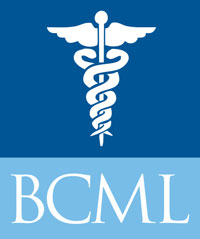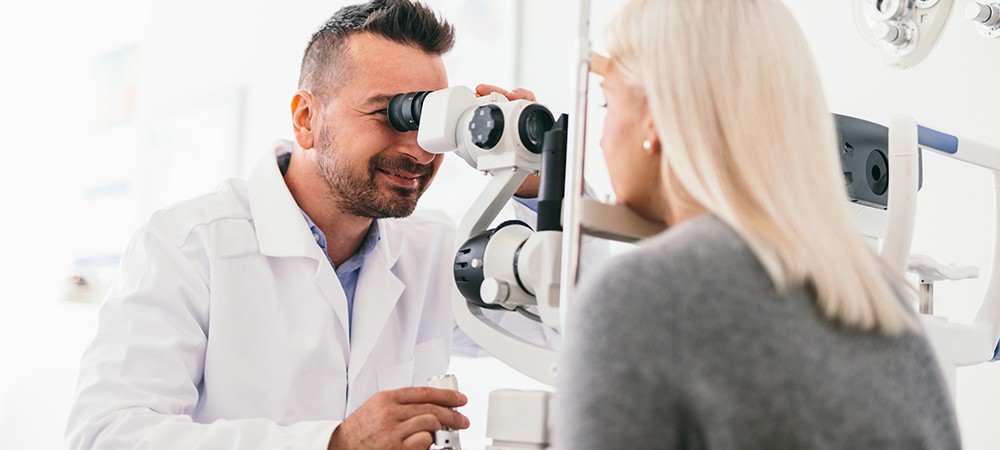Both ophthalmologists and optometrists are trained medical professionals who are an important part of your eyecare health. However, what is the difference between the two and when should you see an ophthalmologist vs an optometrist? In short, an optometrist can provide many of the same services and diagnostic capabilities as an ophthalmologist with the notable exception of surgical solutions.
Here we will look at the differences between an ophthalmologist and optometrist and which is best for your eyecare needs.
What is the Difference Between an Ophthalmologist and Optometrist?
While both ophthalmologists and optometrists are doctors, an optometrist is a doctor of optometry and an ophthalmologist is a medical doctor. An ophthalmologist will earn their surgical experience through four years of medical school followed by four years of residency at a medical facility.
An optometrist, instead of attending medical school, will attend optometry school for four years followed by one year of residency. During residency optometrists will participate in extensive clinical training. With this experience, they can treat and diagnose a wide range of eye conditions, prescribe prescription lenses, and give eye exams.
However, they will not be able to perform eye surgery. In some provinces, an optometrist may be restricted from treating certain eye conditions, but they are generally able to diagnose and give you a referral to the correct medical professional even if they cannot provide the treatment itself.
What Can an Optometrist and Opthamologist Do?
Optometrists: Optometrists are often your first line of defense not only for your eye health but your total health. This is because a thorough eye exam can reveal signs of many other medical conditions including diabetes, high blood pressure, and even certain cancers. An optometrist’s exam will frequently reveal signs of these conditions before you start experiencing symptoms, making this exam critical to early detection and successful treatment.
Other optometrist services include:
Assist With Pre and Post Operative Care: While an ophthalmologist will be the one to perform an eye surgery, an optometrist is often a more convenient choice to provide pre and post op care. Optometrists are fully equipped to provide this care and getting an optometrist appointment is typically easier because they will not have days blocked out for surgery.
Write Eyewear Prescriptions: If you are a long time glasses wearer you likely go to an optician to get your glasses fitted. However only an optometrist or ophthalmologist is able to write the initial prescription.
Eye Exam: More than a simple vision test, an exam allows your optometrist to observe the structure of your eye. This will allow them to see any abnormalities or inflammation that could indicate certain conditions.
Treat Eye Trauma: Eye trauma that does not require surgery can be treated by an optometrist. This includes treating scratches and removing foreign objects from the eye.
Provide Proper Referrals: Though an optometrist is able to treat a wide range of conditions, there are certain medical needs they can not see to. For example, your optometrist may suspect you have a tumor and can refer you to an ophthalmologist, oncologist, or another specialist.
Eye Exam: As mentioned above, this exam focuses on the structure of the eye in order to give clues about your total health. Your doctor will visually look at your eyes and also administer tests to identify any issues. This is often a critical first step to diagnosing various conditions and also getting a baseline for your eye health.
Ophthalmologists: Ophthalmologists can perform all of the services and treatments that an optometrist can along with providing surgical solutions. This includes laser eye surgery, a popular option for those who do not want to or cannot wear glasses or contacts.
When to See an Opthamologist vs an Optometrist?
If you are experiencing any kind of vision issues such as blurriness, a “veil” over your vision, loss of peripheral vision or any other sudden changes, it is key to see an eye doctor. In these cases, an optometrist or an ophthalmologist are both good choices and the most important factor is getting an appointment quickly.
In some cases, an emergency room visit may be the best option. Specifically, if you are experiencing a major headache, numbness on one side of the body, difficulty speaking or any other signs of stroke you should get emergency medical attention immediately.
However, if your vision issues are not an emergency, here are some guidelines for how to choose between seeing an ophthalmologist vs an optometrist:
Optometrist: Generally, an optometrist visit is a good starting point for establishing the baseline health of your eyes. If you need a routine eye exam, new glasses prescription, or have been experiencing more mild eye issues such as eye fatigue from looking at a screen too long, an optometrist is typically your best option. Not only is an optometrist well qualified to perform an eye exam, they are often easier to get an appointment with compared to a specialist.
Ophthalmologist: An ophthalmologist is also able to perform eye exams, provide prescriptions, and perform all the services that an optometrist can. If you need a general check up or eye exam, an ophthalmologist is perfectly fine to make an appointment with. However, it is often the case that an ophthalmologist is the next step after visiting an optometrist who will be able to tell you if you need surgery or other advanced treatment that they cannot provide.
Conclusion
Generally, if you need an eye exam or other routine check up, both an ophthalmologist and optometrist can provide this service. Choosing between the two will often come down to who you can get an appointment with most quickly and other convenience factors. However, if you have more advanced eye health concerns and surgical needs, an ophthalmologist will be the right doctor for you.
Need help managing your eye health now? BCML offers fast, convenient, and compassionate care for your total health including eye exams. To find the best eye care options for you, contact us today at (416) 929-1900.


